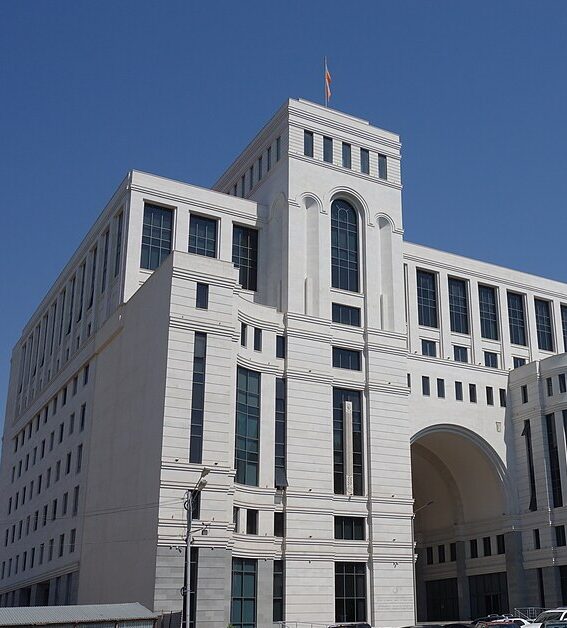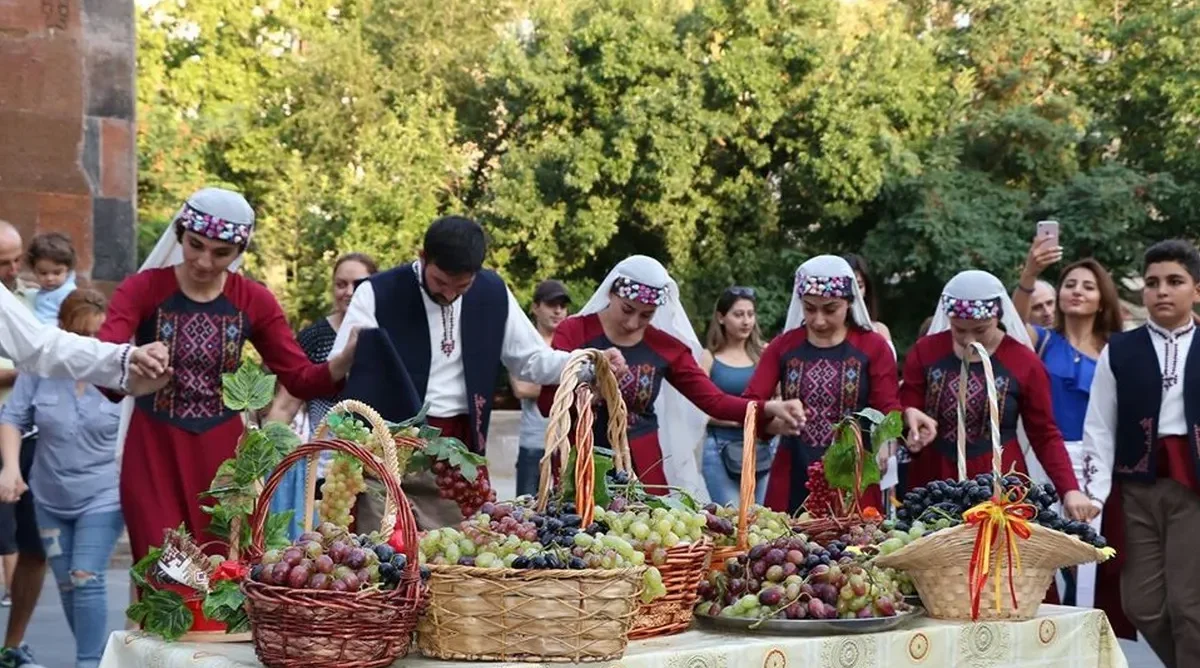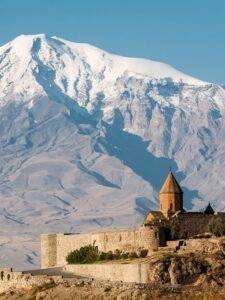Useful information
Useful Information for Travelers to Armenia
Language and communication
The official language of Armenia is Armenian, though many people also speak Russian, and English is commonly spoken, especially among younger generations.
Armenian is part of the Indo-European language family but forms its own distinct branch. It has been in existence since the 9th century BC. The language has two main dialects: Western Armenian and Eastern Armenian.
Armenians use their own unique alphabet, created by the scholar and priest Mesrop Mashtots in 405 A.D. It consists of 39 characters.

Internet and SIM cards
The telephone code for Armenia is +374 (or 00374). Landline numbers typically begin with the following codes: 010, 011, 012, and 060. To dial a landline, use the format: +374-10 / 11 / 12 / 60.
Most telephone numbers in Armenia consist of six digits, though some regions may have five-digit numbers.
There are three major mobile carriers in Armenia:
- Team (codes +374-91, +374-99, +374-96, +374-43, +374-33)
- Viva (codes +374-93, +374-94, +374-98, +374-77)
- Ucom (codes +374-55, +374-95, +374-41)
Mobile SIM cards are easily available for purchase at the airport or at any authorized mobile store, often at affordable prices.
You can top up your balance at kiosks, service centers, or using mobile banking. Recharge terminals are conveniently located throughout the city.
Internet access is available across Armenia, with 3G, 4G, and 5G networks in operation. Public Wi-Fi is widespread and can be found in places like metro stations (only at the stations), some parks, cafes, restaurants, and hotels.

Currency and Payments
The official currency of Armenia is the Armenian dram, which has been in use since November 22, 1993. The currency symbol is the crossed Armenian letter D (֏).
Only the Central Bank of the Republic of Armenia has the exclusive authority to issue currency. All financial transactions are conducted in drams.
Current coins in circulation include denominations of 10, 20, 50, 100, 200, 500 drams, while banknotes are available in 1,000, 2,000, 5,000, 10,000, 20,000, 50,000, and 100,000 drams.
For up-to-date exchange rates, you can visit the Central Bank of Armenia’s website: www.cba.am, or check current rates at various Armenian banks via https://rate.am.
When traveling to Armenia, it’s a good idea to carry both cash and cards for added convenience. Most major card types, such as VISA, Mastercard, and American Express, are widely accepted.
ATMs from both local and international banks are plentiful, and they dispense only Armenian drams.

Safety
Armenia consistently ranks among the top 10 safest countries in the world. Armenians place great value on honor and community, with a deep sense of collectivism. Any dishonest behavior reflects not only on the individual but also on their family and friends, creating a strong social bond that discourages such actions. This sense of accountability helps ensure that visitors are likely to experience a safe and trustworthy environment.
Armenia’s safety makes it one of the most ideal travel destinations for family vacations.

Diplomatic Missions
The Republic of Armenia is deeply committed to enhancing its international relations and strengthening its foreign policy connections. As a result, it makes significant efforts to achieve its diplomatic goals. Armenia offers favorable conditions for partnerships with other nations and international organizations, actively participating in discussions and efforts to address global and regional challenges.
As of 2025, Armenia hosts 40 diplomatic missions, 50 honorary consulates, and 27 international organizations with diplomatic status. A complete list of represented countries can be found here: https://www.mfa.am/ru/by-country/.
Currently, several prominent international organizations maintain offices in Armenia, including the Council of Europe (COE), the International Committee of the Red Cross (ICRC), the United Nations Development Program (UNDP), UNICEF, UNAIDS, and more. For a full list of these organizations, visit the Armenian Foreign Ministry’s website: https://www.mfa.am/ru/international-organizations/.
For further information, you can contact the Ministry of Foreign Affairs of Armenia via their official website: www.mfa.am.

Holidays and Days Off in Armenia
In Armenia, the work week runs from Monday to Friday, with Saturday being a shorter workday. For government offices, typical working hours are from 9:00 AM to 6:00 PM, while shops and shopping centers usually stay open until 9:00 PM. Supermarkets can remain open until midnight, and some even operate 24 hours a day.
The longest holidays in Armenia are during the New Year celebrations, which typically last for 5 days. There is no custom in Armenia to move holidays that fall on weekends to the following workweek. Below is a list of public holidays and non-working days:

Date | Holiday Name | Status |
31 Dec – 3 Jan | New Year | Non-working day |
5-6 Jan | Christmas | Non-working day |
7 Jan | Memorial Day (after Christmas) | Non-working day |
28 Jan | RA Army Day | Non-working day |
19 Feb | Book Giving Day | Working day |
21 Feb | Armenian Language Day | Working day |
28 Feb | Memorial Day for the Victims of Sumgait | Working day |
8 Mar | International Women’s Day | Non-working day |
7 Apr | Mother’s and Beauty Day | Working day |
24 Apr | Remembrance Day for Armenian Genocide Victims | Non-working day |
1 May | Labor Day | Non-working day |
9 May | Victory and Peace Day (Triple Holiday: WWII Victory Day, Shushi Liberation Day, Armenian Army Formation Day) | Non-working day |
18 May | World Museum Day | Working day |
28 May | Republic Day | Non-working day |
1 Jun | Children’s Day | Working day |
5 Jul | Constitution Day | Non-working day |
1 Sep | Education Day | Working day |
21 Sep | Independence Day | Non-working day |
7 Dec | Earthquake Remembrance Day | Working day |
Religious Holidays
Date | Holiday Name | Status |
Easter (according to the church calendar) | Easter Sunday | Non-working day |
Day after Easter | Memorial Day | Non-working day |
40th Day After Christmas | Trndez | Working day |
98th Day After Easter | Vardavar (Water Pouring Festival) | Sunday (Non-working day) |
Armenia’s holiday schedule reflects both national traditions and significant religious observances.
Need more travel tips? Check out our detailed guides and plan your perfect Armenian adventure!



